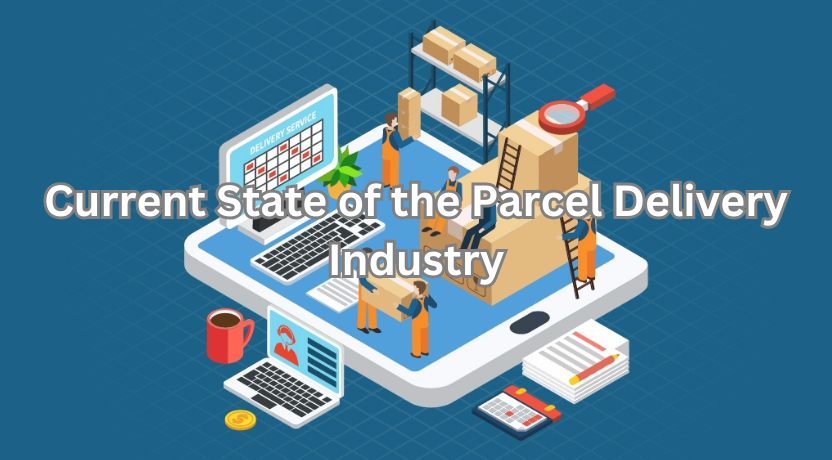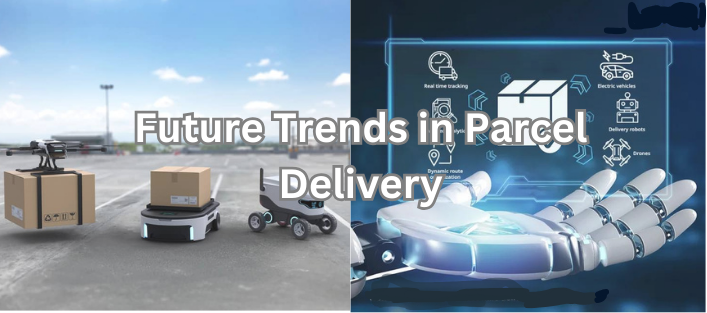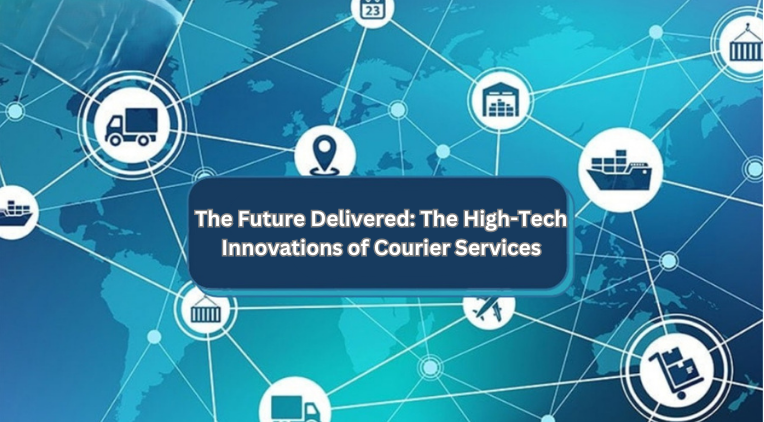The parcel delivery industry is the engine of today’s global economy, playing a functional role in both business and personal affairs. It includes the services various courier companies offer to transport documents, packages, and parcels from one location to another. Thanks to continuous advancements in technology and logistics, these services have significantly improved over the years, offering faster, safer, and more reliable package delivery options to fit various customer requirements.
This article is designed to provide readers with an in-depth look at the future of the parcel delivery industry. As we move further into the narrative, we will explore several aspects of the courier service sector, including its current state, technological changes it has seen, and the direction it is likely to take in the coming years. We’ll also discuss the industry’s commitment to environmental responsibility and upcoming trends that could redefine parcel delivery. Our aim is to give readers a clear understanding of how the parcel delivery industry is preparing for a future marked by digital innovations and demands for sustainability.

Current State of the Parcel Delivery Industry
The Progress of the Parcel Delivery
The history of parcel delivery traces back to ancient times when messages were delivered by foot or by horse. Over the centuries, parcel delivery has improved considerably. The introduction of the postage stamp in the 19th century was a landmark event that standardized charges for parcel delivery. The 20th century witnessed further improvements, with the introduction of airmail transforming global communication.
Scope of Parcel Delivery Service Today
Nowadays, the scope of parcel delivery is vast and spans continents, such as a courier from Canada to India, and includes a network that ensures home delivery, express delivery, registered delivery, and much more. The sector employs millions of people worldwide and plays a sizable role in the international commerce system. The global pandemic led to an undeniable boom in courier service demand, driven by surges in e-commerce and the need for contactless deliveries.
Importance of Courier Services in Modern Society
Courier services allow for the smooth operation of businesses, particularly e-commerce platforms that heavily rely on timely and secure delivery. Courier services help us to send and receive goods from nearly anywhere in the world. These services have brought the world closer, significantly reducing geographical distances.
Technological Innovations in Parcel Delivery
The Power of GPS and Real-Time Tracking
These technologies offer consumers the ability to monitor their shipments and significantly reduce ambiguity associated with parcel delivery. Now, customers can see where their parcel is at any moment, note any deviations or delays, and predict their package’s arrival accurately. For courier companies, these technologies enhance route planning, efficient resource allocation, and improving customer service.
Automated Sorting Systems, Drones, and Robotic Deliveries – The Future is Here
Emerging technologies have improved parcel tracking significantly, and also revamped sorting and delivery. Automated sorting systems are increasingly being implemented by courier providers. These systems utilize advanced conveyor technologies and machine-supported sorting procedures for precise, rapid sorting, reducing error margins and speeding up the process. Concurrently, drones are beginning to play a role in parcel delivery. Drones provide the potential for fast, flexible, and environmentally friendlier deliveries. On the ground, robot couriers are being tested and used, offering safer, contactless delivery options, a necessity highlighted by the Covid-19 pandemic. Together, these innovations are further transforming the parcel delivery industry, marking a new era.
Environmental Responsibility and Parcel Delivery
The Impact of Electric Vehicles on Carbon Emissions
The parcel delivery industry is acknowledging its contribution to carbon emissions and its role in reducing it. Many courier companies are transitioning their fleets to electric vehicles in an attempt to reduce their carbon footprints. These electric vehicles not only decrease carbon emissions, but they operate silently and have lower maintenance costs. This change is a significant step towards environmentally sustainable practices, preparing the industry for a future where fossil fuel-dependent vehicles may become obsolete.
Recyclable and Biodegradable Packing – A Sustainable Approach
The industry is progressively adopting recyclable and biodegradable packing materials as an alternative to conventionally harmful options. These eco-friendly materials decompose completely and harmlessly when disposed of, posing no environmental threat. This approach resonates with major green initiatives across industries, emphasizing the importance of sustainability in future courier services.

Future Trends in Parcel Delivery
Surge in Contactless Deliveries and the E-Commerce Boom
Contactless deliveries have become exponentially popular in the past year due to COVID-19. With people aiming to reduce human contact to halt the virus’s spread, courier services quickly adapted and introduced contactless deliveries. This trend likely will continue, even post-pandemic, due to its convenience and heightened safety measures. Alongside this, urbanization and the e-commerce boom have greatly influenced parcel delivery services. As more people choose digital shopping, the demand for swift, efficient delivery services increases, pressing courier service providers to continually innovate and enhance their services.
Artificial Intelligence, Machine Learning, and Blockchain
Artificial Intelligence (AI) and machine learning are set to massively improve forecasting and logistics in courier services. These advanced technologies can process large data volumes, predict consumer trends, optimize delivery routes, and personalize customer service. This not only boosts efficiency but reduces costs, making their implementation a potential game-changer for the industry. Along with this, integrating blockchain technology into courier services is a growing prospect. Blockchain can bring unmatched security and transparency to courier transactions, creating a tamper-proof record of each parcel’s history. This feature significantly increases the trustworthiness of courier services, an especially desirable attribute in this privacy-conscious age.
Conclusion
The parcel delivery industry is ever-changing and set for a dynamic future. Trends such as real-time tracking, automated sorting systems, AI, and shifting towards green initiatives characterize courier services aiming to offer unparalleled service. As these trends shape and their influence deepens, the result will be a more efficient, sustainable parcel delivery industry, ready to meet modern society’s demands.
